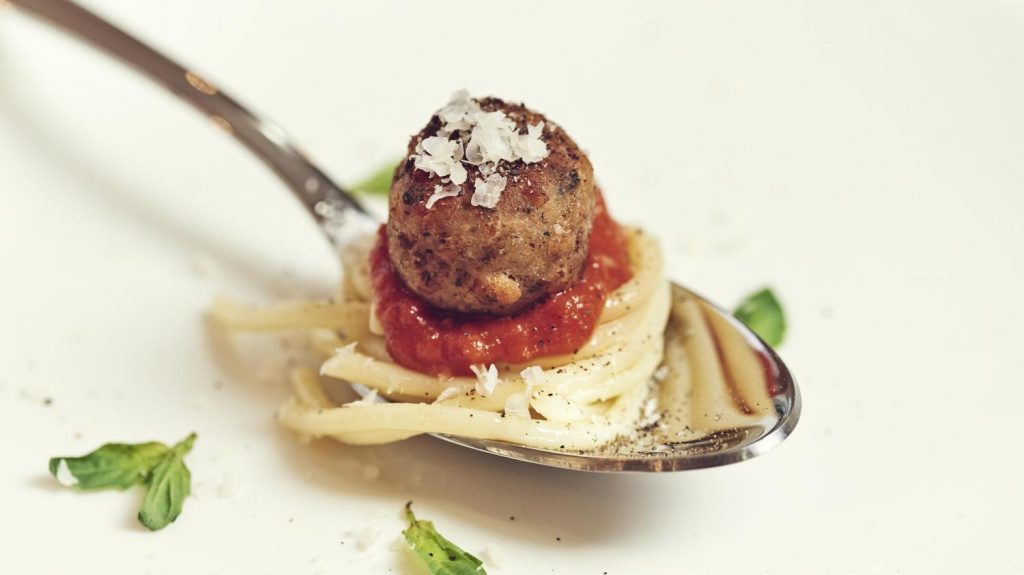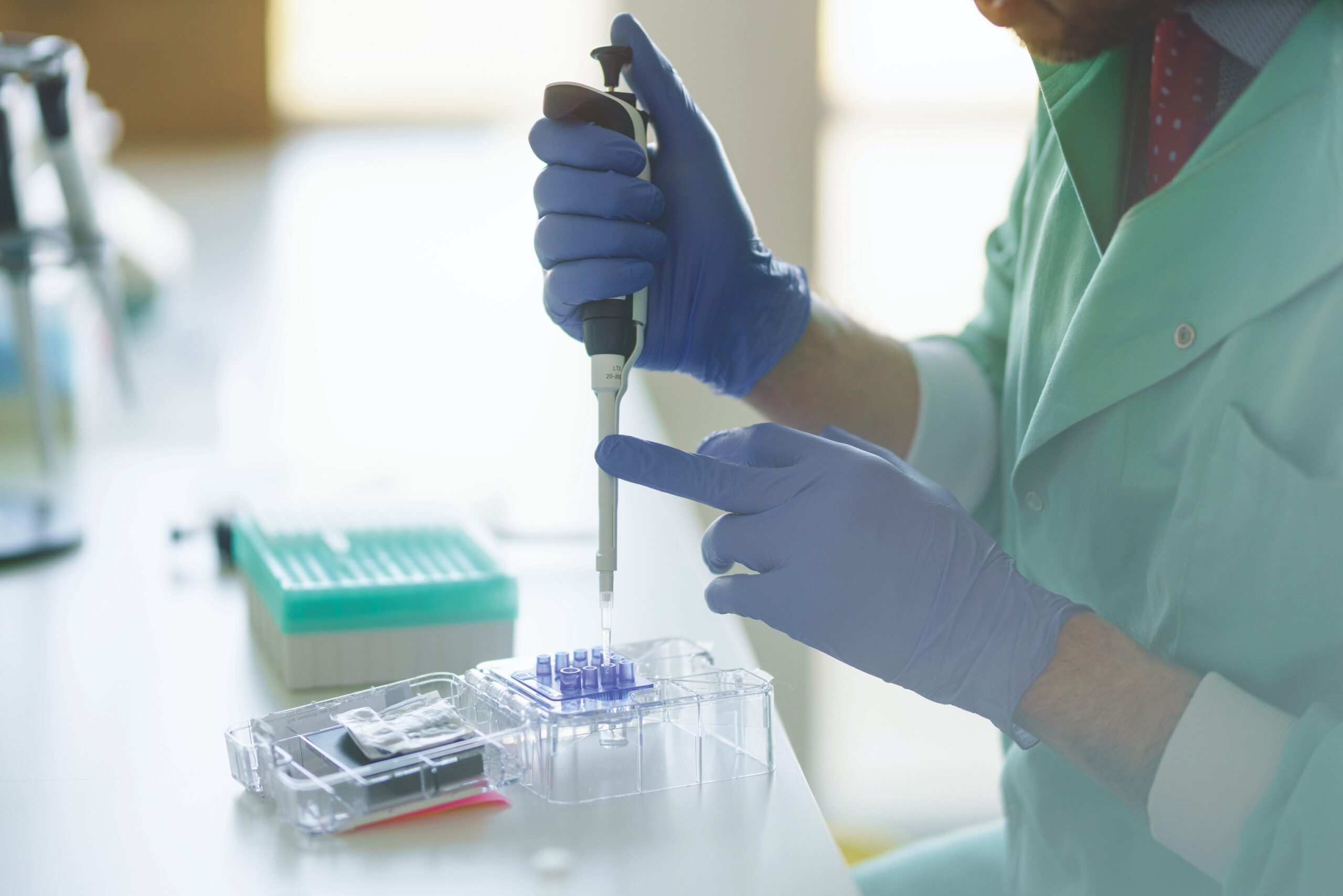Ivy Farm: Leading the UK’s cultivated meat revolution
It’s ARC Oxford’s mission to help businesses in the science, tech and innovation fields grow, thrive and succeed – whether they’re large or small, well-established or start-up. One of the latter is Ivy Farm Technologies, a spinout from the University of Oxford that’s been changing the game when it comes to cultivated meat production since 2019.
In summer 2022, the company opened a state-of-the-art, 18,000 square foot pilot production plant here at ARC Oxford, close to the University of Oxford’s Engineering department. According to Ivy Farm, this is the largest facility of its kind in Europe, with the current capacity to produce around 2.8 tonnes of cultivated meat a year.
So, who are Ivy Farm Technologies, what exactly is cultivated meat and why is it so important to ensure the sustainability of future food supplies? Our latest blog reveals all.
Who are Ivy Farm?
The company is the brainchild of Dr Russ Tucker, whose family has worked in farming and butchery for many generations. Whilst working as a management consultant to supermarkets, Dr Tucker encountered multiple issues around the efficiency and sustainability of the meat industry, along with its attendant ethical and animal welfare considerations, on a daily basis.
Deciding there must be a better way, he returned to his alma mater, the University of Oxford, where he teamed up with Professor Cathay Ye. Together, they created the ground-breaking company, Ivy Farm, to make meat from living cells with no need to slaughter the ‘donor’ animal and none of the adverse environmental impacts or health-related risks associated with traditional meat production.
Why Ivy Farm?
The word ‘Ivy’ was chosen by Dr Tucker and Professor Ye to stand for ‘in vitro.’ This is a scientific term for a process that takes place outside a living organism, such as inside a test tube, or in Ivy Farm’s case, a 600-litre bioreactor tank! ‘Farm’ was selected as a nod to Dr Tucker’s family heritage of farming and butchery.
Since its inception in 2019, the privately-owned Ivy Farm business now employs over 50 people at their ARC Oxford base, supported by a team of world-class advisers. The company maintains strong links with the University of Oxford.
Ivy Farm’s key focuses at the moment are to scale up the technology at an efficient cost, and soon after to seek regulatory approval in major global markets. Having raised over $30 million in funding to date, they’ve already developed a variety of minced meat products including sausages, Aberdeen Angus beef burgers, meatballs and more.
Ivy Farm hope to serve consumers in premium restaurants and supper clubs in the next few years, followed by supermarket shelves.
The economic benefits of cultivated meat
According to a report by Oxford Economics, the cultivated meat industry has the potential to significantly boost the UK economy, creating an estimated £2.70 of value for each £1 of cultivated meat consumed. This value will be generated through the production of inputs such as cell growth media and bioreactors, along with jobs created in the field.
What is cultivated meat?
Sometimes called cultured or lab-grown meat, cultivated meat is meat that’s grown in a laboratory environment using bioreactor technology. The production process has many similarities to growing and nurturing plants. It all starts with fat or muscle cells taken from an animal – just like taking cuttings from a living plant.
Next, the cells are nurtured in a large tank called a bioreactor (Fun fact: Ivy Farms 600L bioreactor is called Betty). They’re ‘fed’ nutrients and vitamins to encourage them to multiply. After just a couple of weeks, the cells will have multiplied to become several billion! That’s enough to make 1kg of meat. And when you consider that cells taken from just one cow can enable the production of 175 million quarter pounder beefburgers, you can see just how efficient the process can be.
There are health benefits, too. By selecting the right cells, Ivy Farm products have significantly less of the saturated fats associated with red meat in particular, whilst more of the good stuff such as a complete amino acid profile, lots of iron and Omega-3. As the meat is grown in a sterile lab environment, there’s no risk of diseases such as salmonella or e-coli, or any other type of contamination. Cultivated meat also removes the need for antibiotics, which are often used in traditional meat production and contribute to antibiotic resistance and the rise of superbugs such as MRSA. Ivy Farm know exactly what’s in their meat and where it comes from at all times, offering invaluable reassurance to consumers.
Why do we need cultivated meat production?
With the world’s population set to hit 9.7 billion by 2050, the demand for meat is predicted to grow by 73%. This isn’t sustainable and would lead to mass deforestation, the extinction of countless species due to habitat loss, and a huge increase in greenhouse gases from animal agriculture, which already accounts for up to 20% of global emissions (mostly high-polluting methane). The situation could be so dire that scientists have referred to the consumption of meat as ‘the sixth mass extinction event in planetary history.’ Scary stuff.
So, with a global food shortage potentially becoming a stark reality in the coming decades, viable alternatives must be found – and soon. Cultivated meat could play a key part in addressing the issues at hand. At present, 1.2 billion animals are slaughtered for food in the UK alone. By 2025, Ivy Farm aims to be producing 12,000 tonnes of meat a year, which is approximately equivalent to saving the lives of 173,000 beasts. Over time, these figures could increase manifold, especially as more UK producers join the industry.
And if the manufacture of lab-grown meat is approved and spreads worldwide, this will help stop deforestation in its tracks and, in time, mitigate some of the effects of greenhouse gas emissions. The meat production industry will need to rear far fewer animals, so intensive farming could be a thing of the past and animal welfare standards should improve. We can all love animals, love our planet AND love meat!
Why Ivy Farm Technologies chose ARC Oxford
ARC Oxford was established to provide the foundations for innovation to happen. That’s why our science and innovation cluster is home to an ever-growing family of world-changing businesses. So, when Ivy Farm needed a new location in the Oxford area to house its breakthrough technology and pilot manufacturing plant, we were top of their list! Their 18,000 square feet of office and lab space provides the perfect springboard for all their research, development and production activities.
When unveiling their new facility last summer, Dr Tucker commented: “Making real meat in a new and more sustainable way has never been done at real scale before. The completion of the pilot plant, R&D facility, new office and innovation kitchen at ARC Oxford represents a really exciting milestone on our growth journey as a company.
“By building Europe’s largest pilot plant and expanding our R&D facilities, we’ve taken a huge step towards our mission of producing guilt-free, real meat that’s good for the planet, people and animals.”
Like all the 3,500 ARC Oxford members at our 88-acre campus, Ivy Farm enjoy access to a wide range of facilities on top of purpose-built, best-in-class office and lab space. These include Oxford Works, a campus hub with break-out spaces, a café, and bookable meeting rooms; a cycle workshop; a health and fitness club; a nursery; onsite hotel and more. Our members also benefit from a packed event programme of seminars, science festivals and socials, as well as the support of our Community and Events team.
Find out more about Ivy Farm Technologies and ARC Oxford
For more information about Ivy Farm, their latest developments and company news, please visit www.ivy.farm.
To find out more about ARC Oxford and how your company could join our thriving science, tech and innovation cluster, please head to www.arcgroup.io. You can read about the various properties we currently have available here.
Image credit: Ivy Farm Technologies



